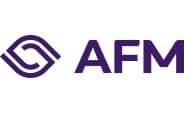
AFM and Dutch central bank (DNB): Work on the interest rate benchmark transition required
The Netherlands Authority for the Financial Markets (AFM) and the Dutch central bank (DNB) see that financial enterprises in the Netherlands have made progress in their transition to alternative interest rate benchmarks. At the same time, action is still needed, in part where the inclusion of fallback provisions in contracts is concerned. This is apparent from the analysis of a joint request published on AFM.NL on 25 November 2020.
In short
- Many interest rate benchmark contracts refer to alternative benchmarks, including EURIBOR
- Contracts referring to interest rate benchmarks in other currencies have not yet been converted
- Fallback provisions insufficiently included
As a result of manipulations in interbank offered rates (IBORs) and the drying up of liquidity in the interbank lending market, a global transition from IBORs, in particular EONIA and LIBOR, to alternative benchmarks was decided upon. The alternative benchmarks vary by jurisdiction and include €STR, SONIA and SOFR. EURIBOR also serves as an alternative benchmark. Market parties must transfer their contracts to an alternative benchmark. In addition, if they use EURIBOR, they must include fallback provisions in the event of the cessation of EURIBOR.
Concerns remain
Many contracts are now based on future-proof benchmarks, including EURIBOR. However, important issues still remain, such as the inclusion of fallback provisions in financial contracts should the benchmark in use disappear. Market parties are struggling to adopt adequate fallback provisions and are waiting for standards from working groups, such as the Working Group on EU Risk-Free Rates, or international industry organisations. The AFM and DNB believe that market parties should also take the initiative in this respect.
Possible systemic risks
Poor preparation for the transition can lead to multiple risks. These include uncertainty about payments or valuations, legal conflicts, reputational damage, operational problems, and the reduction of liquidity in the markets for commonly used derivatives. An accumulation of risks can ultimately threaten financial stability. The AFM and DNB are therefore closely monitoring the transition phase and are calling on financial institutions to switch to suitable alternative interest rate benchmarks and to include fallback provisions in contracts where applicable.
Contact for this article

Would you like to receive the latest news from AFM?
Subscribe to our newsletter, we will keep you up-to-date.